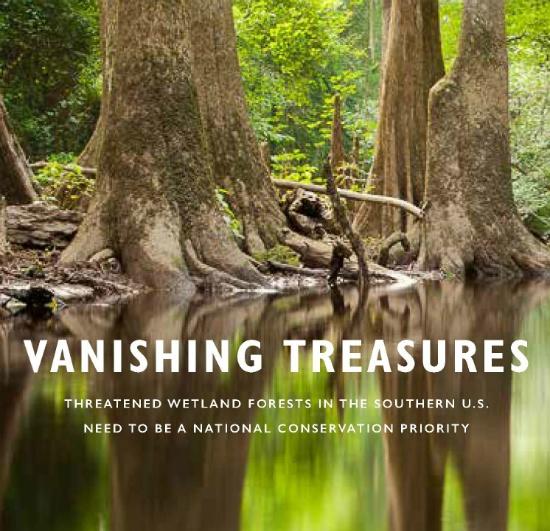
By Dayna Reggero
Marked this month, World Wetlands Day is a celebration of cooperation on a global scale. Danna Smith, the director of Dogwood Alliance, brought it to my attention that World Wetlands Day set the stage for the largest intergovernmental agreement on the environment to date -- the Paris Agreement, signed this past December by 195 countries committing to take action on global climate change.
Sixty-five percent of our nation’s wetland forests are found in the Southern U.S., and a vast majority are found on private lands across the rural landscape. Recently, biomass energy emerged as a new threat to wetland forests with European policymakers promoting the burning of these Southern forests for electricity to meet their “clean energy” targets.
As Smith put it: “Accelerated logging in recent years to supply a new market to Europe for wood as a fuel for generating electricity underscores the constant threat and ongoing degradation these largely unprotected forests face,” Smith said. “While some laws prevent these forests from being converted to agriculture or development, rampant industrial logging remains largely unregulated.”
The Daily Mail recently ran an expose that stated: “Hunger for wood fuel is devastating hardwood forests in America,” and, “although they are home to dozens of species of animals and birds, some of them endangered, the forests are not protected.”
A recent report prepared for Dogwood Alliance by Key-Log Economics shows that the long-term consequences of biomass far outweigh any suggested benefits. Standing forests provide critical ecosystem services, supplying coastal communities with natural storm protection and abundant and clean drinking water; plus, using wood pellets as fuel for generating electricity is likely to accelerate climate change with enormous economic costs that would disproportionately impact our coastal communities; and the increased degradation of forests and the natural services they provide could significantly limit a community’s ability to attract new businesses and residents, one of the most important factors affecting economic growth across the South.
“The wood-pellet export market is not a sound economic development strategy for the rural South in the 21st century,” Smith said. “In light of recent increased periods of drought, impending threats of sea level rise and the increasing frequency and intensity of storms, keeping wetland forests standing strong along our coasts is one of the smartest investments we can make over the coming decades to keep our coastal communities safe from the impacts of a changing climate.”
The conservation, restoration and responsible management of Southern wetland forests are critical in the global effort to address climate change because of the important role they play in removing and storing carbon. This is one in a myriad of reasons why wetland forests across the region are the target of a new initiative that will work across a nine-state region to protect the best of what remains across the South.
This past year, while filming climate change stories around the South as part of my Climate Listening Project tour, I saw first-hand the desolate landscapes and clear-cuts amidst our Southern forests. Just like the Paris climate agreement, continued global cooperation is essential to ensure the long-term protection of our wetland forests and communities -- with individuals, organizations, utility companies, government and policymakers, landowners, and the private sector all working together to create clean and socially-responsible energy solutions.
Image: Dogwood Alliance
TriplePundit has published articles from over 1000 contributors. If you'd like to be a guest author, please get in touch!














